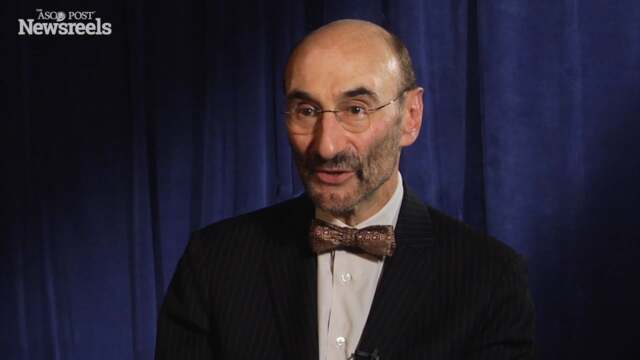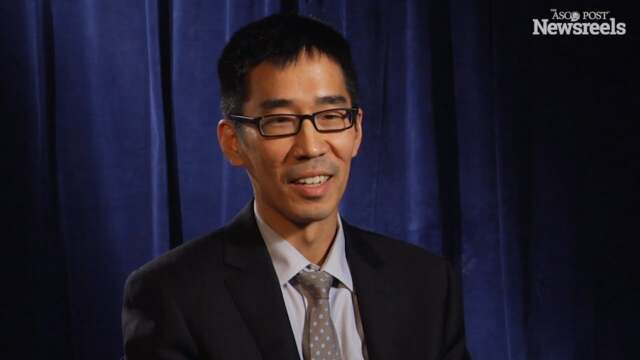Alysa M. Fairchild, MD, on Preventing Radiation-Induced Pain Flare
2015 ASTRO Annual Meeting
Alysa M. Fairchild, MD, of the Cross Cancer Institute and the University of Alberta, discusses her study on the use of dexamethasone to reduce pain flare in patients receiving palliative radiotherapy for bone metastases (Abstract LBA6663).
Leonard Gunderson, MD
Leonard Gunderson, MD, of the Mayo Clinic College of Medicine, discusses PET/CT imaging in upper and lower gastrointestinal cancers, which can be of value as a baseline study prior to treatment, in determining the degree of response to treatment, and in helping decide whether there is a relapse after a complete response to treatment.
Bruce Minsky, MD
Bruce Minsky, MD, of MD Anderson Cancer Center, discusses two important papers: results from a prospective trial on quality-of-life outcomes for low-risk HPV-associated oropharyngeal squamous cell carcinoma, and a prostate cancer radiation therapy study (Abstracts 3, 4).
Howard M. Sandler, MD
Howard M. Sandler, MD, of Cedars-Sinai Medical Center, discusses this phase III noninferiority study comparing two fractionation schedules in patients with low-risk prostate cancer (Abstract LBA6).
Bruce Minsky, MD
ASTRO President Bruce Minsky, MD, of MD Anderson Cancer Center, talks about the goals and highlights of this year’s ASTRO Annual Meeting.
James B. Yu, MD
James B. Yu, MD, of Yale School of Medicine, summarizes the plenary lecture on results from the NRG Oncology/phase III study comparing two fractionation schedules for low-risk prostate cancer (Abstract LBA6).





